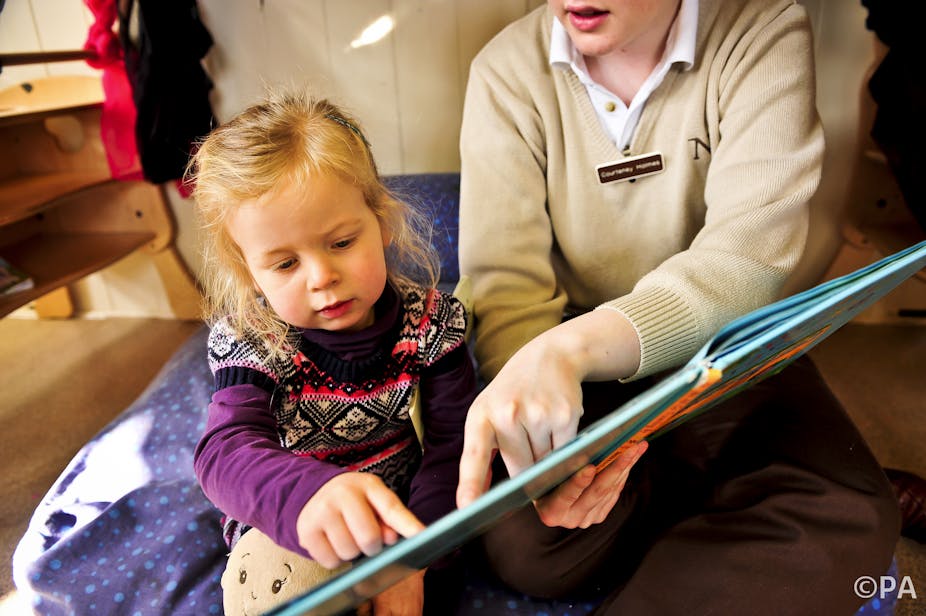Some children arrive at school already able to read. They have enjoyed books with their parents and understand the exciting route that reading takes them into the wonderful world of stories.
They may well have learned how to read without any structured input from an adult. They may be using what we might broadly call strategies of synthetic phonics, the sounds that make up words, but are also recognising words as wholes, working out meanings from the context of a sentence.
They may even have grasped that you often cannot read a piece of text until you appreciate the context afforded by the sentence or sentences concerned. The words “wind” and “row”, which mean very different things in different sentences, are just two of many examples in English.
But, from September 2014, as part of the new national curriculum, all children in reception and year one must start off by learning their letters as sounds, a method known as synthetic phonics. For instance, the sounds associated with b-a-t can be combined to make the sound we hear when someone says bat. However, I have argued this might almost amount to abuse of more able readers.
Part of what is expected is the provision of regular intensive phonics lessons without the distractions of other strategies for reading.
Pupils are to be given texts entirely consisting of words that can be read by blending together letter sounds. We already have a statutory phonics test in force for all five to six year-olds in England, apparently consisting of 20 real words and 20 non-words, which can be read using the synthetic phonics approach. Why do I say apparently? Because, in reality the check contains no real words, since no context is provided.
To subject either the fully fledged readers, or those who are well on their way, to a rigid diet of intensive phonics is an affront to their emerging identities as persons. Some able readers fail that phonics check, sometimes more than once. What might those children feel?
We’re not trialling a new drug
Many of us are troubled by the rigid universal imposition of this policy on teachers and pupils. It is as though the government knows that certain methods will work, regardless of the teachers and the individual attainments and motivations of their pupils. This presents us with the bizarre spectacle of teacher proof or even pupil proof methods, the value of which policymakers think they can glean from research.
The reading wars continue between opponents and supporters of various approaches to the teaching of reading. This unsatisfactory state of affairs is a symptom, I believe of a deep problem with the research concerned.
Some seem to imagine that you can investigate teaching approaches in the same kind of way as you might engage in the trialling of a drug, or the effectiveness of a particular fertiliser on a crop.
Yet teachers who teach early reading have to respond to their pupils and to frequently modify what they are doing. They do not and should not indulge in classroom practices that are somehow insulated from how their pupils are coping.
Decisions have to be made about a whole range of possible issues. What if the teacher’s accent differs from the pupils’? Or if some pupils speak differently from others, or several of the class have a first language that is not English? Some children may recognise whole words when they are supposed to be blending, while others may be trying to work out the word by looking at its context.
We cannot distill a method from all this that can be objectively identified and researched along the lines of a drug and its dosage.
Many teachers currently make good use of phonics strategies, taking flexible and professional decisions about how to do so, and the extent to which they subject all their pupils to particular approaches at any given time. With the strengthening of the statutory policy, will all schools feel able to continue with this flexible approach?
Anecdotally, some parents, anxious to support their children, worry about sharing books with them before they begin school, lest the children encounter non-decodable words and begin to recognise them as whole words.
This is possible, when you think that words such as “the”, “who”, “was”, and many others fall into this category. The parents are concerned that their child might have identified a word by using context or pictures, instead of by the sounds of the letters, and then fear that this is not the right way of doing things. For me, this imposition of phonics is an affront to those children and their families.

